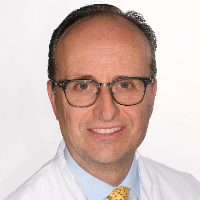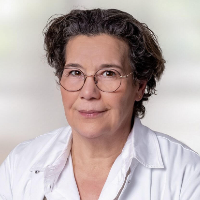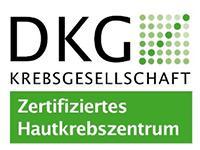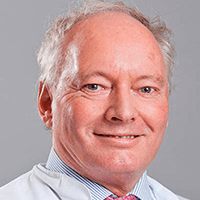Skin Cancer — Photodynamic Therapy (PDT): treatment in the Best Hospitals in the World
Treatment prices are regulated by national law of the corresponding countries, but can also include additional hospital coefficients. In order to receive the individual cost calculation, please send us the request and medical records.

Department of Adult and Pediatric Dermatology, Allergology and Phlebology
The Department of Adult and Pediatric Dermatology, Allergology and Phlebology offers all the options of modern medicine for diagnosing and treating skin diseases, allergies, and venereal pathologies. The focus of the department's dermatologists is on patients with various types of skin cancer, psoriasis, eczema, neurodermatitis, acne, venous diseases, and chronic non-healing leg ulcers. The medical facility also admits young patients, including those with rare and genetic skin diseases. The department has an excellent technical base, thanks to which modern laser treatment, light therapy, phototherapy, and advanced sparing surgical interventions are successfully performed here. Top-class medical care is provided by a highly professional team of 60 specialized doctors and 130 nurses, as well as medical and technical workers. About 90,000 patients undergo outpatient treatment, and more than 5,800 patients receive medical care on an inpatient basis annually. The hospital has 160 beds to accommodate patients. The department is thus one of the largest medical facilities of this kind in Germany.






Department of Dermatology and Allergology
The Department of Dermatology and Allergology provides all diagnostic tests and therapeutic measures for the treatment of skin diseases and allergic reactions. The priority area of the department's work is the treatment of malignant skin neoplasms (certification as a Skin Cancer Center of the German Cancer Society). Each patient receives an individual treatment regimen for skin pathology or allergies, which includes the most effective and sparing therapeutic methods.




Department of Dermatology, Venereology and Allergology
The Department of Dermatology, Venereology and Allergology offers the diagnostics and treatment of all dermatological diseases. The department specializes in the very latest methods of surgical dermatology, diagnostics and treatment of skin cancer, venous diseases, as well as all diagnostic and therapeutic methods of modern dermatology, including laser dermatological therapy, phototherapy, photodynamic therapy, etc. The treatment of patients with skin cancer is carried out in close cooperation with colleagues from the University Cancer Center Frankfurt.






Photodynamic therapy for skin cancer is one of the progressive treatments for this disease. It is widely used in the leading Cancer and Dermatology Centers of developed countries. The method has many advantages, such as minimal invasiveness, high selectivity of tumor tissue damage and the absence of severe complications.
Principle of the method
Photodynamic therapy involves the introduction of a photosensitizer into the patient's body. This is a substance that accumulates in cancer cells. The substance itself is not toxic, but it is activated when exposed to light waves of a certain length. Once the sensitizer has been administered, the tumor will be irradiated with this light. The photosensitizer activates and destroys cancer cells.
Typically, the destruction occurs due to the activation of oxygen and the formation of many free radicals. The cell death initiates singlet oxygen. The photosensitizers of the first generations used to be an option of choice. They were poorly accumulated in cancer cells, did not cause total tumor destruction, and therefore they were used only as palliative treatment. However, today there are new drugs that are more effective. They can completely destroy cancer cells, thereby curing the disease.
The advantages of the method include:
- It is more sparing than surgery
- It can completely cure skin cancer at the initial stages
- The procedure is performed on an outpatient basis
- Accurate tumor targeting, minimal impact on healthy tissue
- Wounds heal without large scars, and therefore the procedure provides a good aesthetic effect
At the same time, PDT has limitations. This method can only treat tumors that can be irradiated with light waves after the introduction of the photosensitizer. Therefore, PDT in monotherapy cannot be used for invasive skin cancer and the presence of metastasis. Nonetheless, it can be combined with radiation therapy, chemotherapy and surgical treatment for skin cancer.
What patients can be treated with PDT?
Photodynamic therapy is suitable for:
- Patients who do not want to undergo surgery
- Patients who have a T1 tumor – up to 2 cm in diameter
- Patients who have a T2 tumor – more than 2 cm, but without invasion into the deeper layers of the skin
- Patients who have a tumor located in aesthetically significant areas of the skin
The therapy aims not to reduce the tumor and not to slow its growth, but to completely destroy it. The effectiveness depends on the stage of skin cancer, the location of the tumor and the photosensitizer used. On average, when treating stage 1-2 of the disease, it is possible to achieve a complete cure of the disease in 85% of patients.
How is PDT performed?
Photodynamic therapy begins with the introduction of a sensitizer. It is usually administered intravenously. A few hours after this, the tumor is irradiated using a special device. The distance to the radiation source is several centimeters and depends on the area to be exposed. The light spot is directed so that it extends beyond the boundaries of skin cancer by 0.5 cm or more. The radiation time and energy density are calculated individually.
There are photosensitizers that can be applied locally. They are safer, do not require the protection of the patient from light after a course of therapy. They can also be used in elderly patients and in patients with a burdened allergic medical history. At the same time, local photosensitizers are less effective, therefore, they can be used only with a minimal depth of cancer invasion, in the very early stages.
To cure the disease, the patient often requires not one, but several sessions. Each time the patient is under control. The doctor examines the patient 1 month after PDT. The full cure can be achieved in half of the patients the first time. The rest require a second course of photodynamic therapy. After the second exposure, a complete destruction of the tumor occurs in another 30% of patients. The subsequent third and fourth sessions of PDT, which are performed with an interval of 1 month, can cure another 15% of patients. Only 5% have to additionally resort to other treatments.
Most patients do not have a relapse of the tumor. It happen within 5 years in 15% of cases. The relapses can also be treated with photodynamic therapy, and in most patients this approach leads to a cure for the disease.
The treatment process usually does not require local anesthesia. Non-narcotic analgesics can sometimes be used. During the irradiation procedure, the patient may feel a burning or tingling sensation in the irradiation area. In the first two days after the procedure, pain in the affected area is also possible.
What happens after treatment?
After a course of therapy, the patient has symptoms manifested on the skin. It becomes red and swollen. These phenomena reach their maximum in the first day after PDT. Within 1 week, the symptoms become less severe. The full recovery takes about 1 month.
When examining the patient after 1-2 days, the doctor notices the areas of necrosis. The tumor becomes black or gray. The necrotic processes reach a maximum after two days. The epithelization of the skin occurs later.
The patient will be examined 1 month later. The doctor checks if the tumor has been totally removed. Should skin cancer be cured, no further monitoring will be required. Some patients can be prescribed repeated photodynamic therapy. The indications for another irradiation session are a long non-healing ulcer, small shiny nodules, pathologically altered tissues with a roller on the periphery, or a dense scar welded to the underlying tissues. The total tumor removal is indicated by the complete healing of the wound with the formation of a soft scar. In doubtful cases, a biopsy can be indicated.
Treatment abroad with the Booking Health company
You can use the services of the best doctors in the world by booking a treatment program abroad through Booking Health. We will arrange your trip for you to receive medical services. You will get many benefits:
- Selection of the best clinic that specializes in photodynamic therapy and achieves significant success in this medical field.
- Reduced cost of photodynamic therapy for skin cancer. You save up to 50% due to the absence of overpricing and additional coefficients for foreign patients.
- Booking an appointment on the most suitable dates for you.
- Preparation of the program taking into account the previously performed tests.
- Establishment of communication directly with the attending physician.
- Monitoring of all stages of a photodynamic therapy program.
- Control of invoices, return of unspent funds.
- Buying and forwarding medicines.
- Organization of additional diagnostic or therapeutic procedures.
- Communication with the clinic upon photodynamic therapy completion.
We will help you with paperwork, book a hotel and airline tickets, pick you up from the airport and provide you with interpreting services. After completing the course of cancer treatment, we will organize a return transfer from the hospital to the airport.

